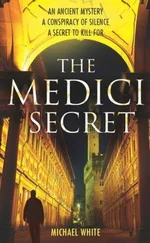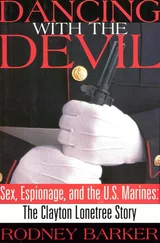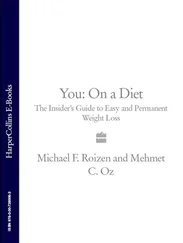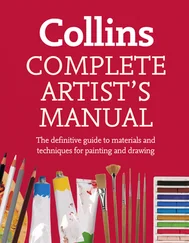Highlight
A brilliantly energised orchestral sequence called ‘The Chairman Dances’, which has entered the concert repertoire as a stand-alone piece.
Did You Know?
 Nixon in China is one of the most commercially successful of all modern operas. The Grammy Award-winning recording was named a ‘recording of the decade’ by Time magazine, and the whole thing broadcast on American TV as though it were a newsflash, introduced by Walter Cronkite – which is probably the only time Richard Nixon ever saw it. He declined an invitation to attend the Houston premiere, and is not known to have been present at any other live performance.
Nixon in China is one of the most commercially successful of all modern operas. The Grammy Award-winning recording was named a ‘recording of the decade’ by Time magazine, and the whole thing broadcast on American TV as though it were a newsflash, introduced by Walter Cronkite – which is probably the only time Richard Nixon ever saw it. He declined an invitation to attend the Houston premiere, and is not known to have been present at any other live performance.
Recommended Recording
Sanford Sylvan, James Maddelena, Chorus and Orchestra of St Luke’s/Edo de Waart. Nonesuch 7559 79177-2. The only recording to date.
Samuel Barber
(1910–81)
A Hand of Bridge (1953)
Vanessa (1957)
Anthony and Cleopatra (1966)
Barber was an American who looked to Europe and the melodic abundance of European late-Romanticism for inspiration. Born into a WASP-ish East Coast family, he was one of the first students at the new Curtis Institute in Philadelphia where he studied singing as well as composition. Opera wasn’t a preoccupation, and his few stage works have tended to be overshadowed by concert scores like the Violin Concerto, the lyrically nostalgic scena for voice and orchestra Knoxville, Summer of 1915, and above all by the deathless Adagio, which must have featured on the soundtrack to more feature films and TV documentaries than anything since Vivaldi’s Four Seasons. But at Curtis he had met another young composer called Gian Carlo Menotti who was supremely a creature of the theatre. They went on to spend most of their lives together, and the first two of the three Barber operas were collaborations in which Menotti wrote the words. A Hand of Bridge doesn’t actually require many words: it lasts nine minutes and is no more than a brilliant little diversion. Vanessa, with its darkly Ibsenesque plot, is far more substantial, while Antony and Cleopatra is grander still, written for the opening of the new Metropolitan Opera in New York.
Vanessa

FORM: Opera in four acts; in English
COMPOSER: Samuel Barber (1910–81)
LIBRETTO: Gian Carlo Menotti; after Isak Dinesen’s story
FIRST PERFORMANCE: New York, 15 January 1958

Principal Characters
Vanessa, a baroness  Soprano
Soprano
Anatol,a young man  Tenor
Tenor
Erika,Vanessa’s niece  Mezzo-soprano
Mezzo-soprano
Old Baroness,Vanessa’s mother  Contralto
Contralto
Doctor  Bass
Bass
Synopsis of the Plot
Setting:A country house in an unnamed ‘northern country’ in the early 1900s
ACT IVanessa waits alone in her sumptuous drawing room for a visitor to arrive. When he does at last come, Vanessa keeps her back turned to him, saying that she has waited twenty years for his return but, if he can no longer love her, then he must go immediately. As the visitor answers her, Vanessa whirls round, realizing that he cannot possibly be her lover, Anatol; he is much too young. Weak with shock she is taken to her room by Erika. Meanwhile, Anatol casts an acquisitive eye over the rich furnishings of the room. When Erika returns he explains that he is the son of Anatol, Vanessa’s lover who went away twenty years ago; his father is now dead. In view of the snowstorm raging outside, he begs Erika to let him stay the night and, carefully scrutinising the girl, calmly sits down to enjoy the meal prepared for his father.
ACT IIA month has gone by. Erika confesses to the old Baroness that, although she and Anatol became lovers on that first night, she does not love him and will not marry him. Vanessa, aglow with happiness, returns from skating with Anatol and announces plans for a grand New Year Ball. Later, the old Baroness questions Anatol about his behaviour towards Erika and extracts his promise to marry her. Erika, however, knowing that her aunt, Vanessa, is in love with Anatol, rejects him.
ACT IIIThe ball is under way and Vanessa and Anatol are about to announce their engagement. The pregnant Erika, shocked and disturbed, wanders unnoticed outside into the bitter cold as the music and dancing continue in the background.
ACT IVErika has been found unconscious and has suffered a miscarriage, kept secret from Vanessa, who is now married to Anatol and preparing to leave for their honeymoon in Paris. After they leave, Erika is alone; she orders the mirrors to be draped and the gate to be shut, just as her aunt had done: ‘Now it is my turn to wait’.
Music and Background
A conservative piece for its time, Vanessa is richly scored in the manner of late Romanticism, owing much to Puccini and Richard Strauss, and with most of the formal ingredients of conventional 19th-century grand opera but translated into American terms. There is a fragment of a ball scene, ravishingly lyrical set-piece arias, and a sort of folk ballet – all of which contributed to the enormous success Vanessa enjoyed in its early years. It was the first opera in English ever to be heard at Salzburg, where it played with the Vienna Philharmonic in the pit.
Highlights
Erika’s aria ‘Must the winter come so soon?’ is a winner, as is Vanessa’s ‘Do not utter a word’, and the final quintet is arguably one of the most effective climaxes in modern opera.
Did You Know?
 The original production of Vanessa was a grand event with opulent sets and costumes by Cecil Beaton. It was intended that Maria Callas should sing the title role but she declined – allegedly because she thought Erika too much a rival part.
The original production of Vanessa was a grand event with opulent sets and costumes by Cecil Beaton. It was intended that Maria Callas should sing the title role but she declined – allegedly because she thought Erika too much a rival part.
Recommended Recording
Eleanor Steber, Rosalind Elias, Regina Resnik, Nicolai Gedda, Metropolitan Opera/Dmitri Mitropoulos. BMG/RCA GD 87899. The original cast, and the only recording.
Béla Bartók
(1881–1945)
Duke Bluebeard’s Castle (1918)
Born in a part of Hungary which is now Romania, Bartók was one of the pioneer figures of 20th-century music, forging a new musical style from the folk traditions of his native country that owes nothing to the two composer-giants who are generally considered the great originators of modernity, Schoenberg and Stravinsky. Most of his work was instrumental and orchestral, with a set of six string quartets that rank as the most significant of their kind since Beethoven, and major concert scores like the Concerto for Orchestra and Music for Percussion, Strings and Celesta. His involvement with the stage was limited and Duke Bluebeard’s Castle his only opera, although he did subsequently produce two ballet scores, The Wooden Prince and The Miraculous Mandarin. He left Hungary for America in 1940 and died there in financially straitened circumstances five years later.
Читать дальше
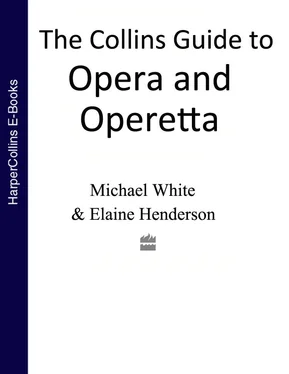
 Nixon in China is one of the most commercially successful of all modern operas. The Grammy Award-winning recording was named a ‘recording of the decade’ by Time magazine, and the whole thing broadcast on American TV as though it were a newsflash, introduced by Walter Cronkite – which is probably the only time Richard Nixon ever saw it. He declined an invitation to attend the Houston premiere, and is not known to have been present at any other live performance.
Nixon in China is one of the most commercially successful of all modern operas. The Grammy Award-winning recording was named a ‘recording of the decade’ by Time magazine, and the whole thing broadcast on American TV as though it were a newsflash, introduced by Walter Cronkite – which is probably the only time Richard Nixon ever saw it. He declined an invitation to attend the Houston premiere, and is not known to have been present at any other live performance.
 Soprano
Soprano
